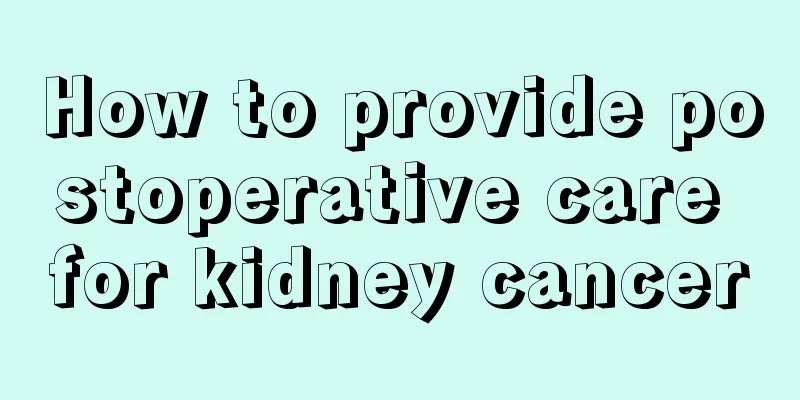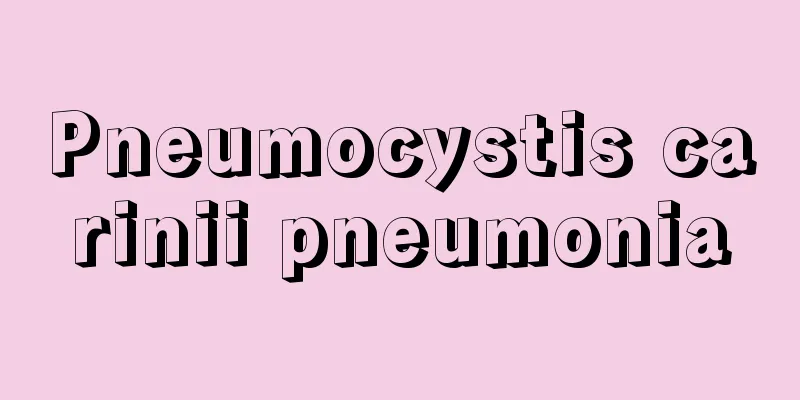How to provide postoperative care for kidney cancer

|
The treatment of kidney cancer is still mainly surgical treatment. Generally, the 5-year survival rate after nephrectomy is 35% to 40%, and the 10-year survival rate is 70% to 30%. The prognosis of kidney cancer is sometimes difficult to estimate, and the postoperative care of kidney cancer should not be underestimated. Postoperative care of kidney cancer includes: 1. Early postoperative care: 1: General care: Special personnel should be assigned to provide care after surgery, and monitoring should be performed. Before the patient wakes up from general anesthesia, routine care should be performed under general anesthesia, and routine oxygen inhalation should be performed. Closely observe vital signs: blood pressure, pulse, and respiration should be measured once every 15 to 30 minutes, and recorded until the patient is fully awake and in a stable condition. This can be changed to measuring once every 1 to 2 hours until the next morning. The patient should be encouraged to take deep breaths, and coughing or nebulization should be assisted when necessary. The patient should be allowed to turn over frequently without affecting the safety of treatment. If it is a radical nephrectomy, the patient should be allowed to get out of bed and move around as soon as possible; if it is a partial nephrectomy, the patient should be allowed to stay in bed for about 5 days. 2: Diet and nutrition: Fasting for 48 hours after surgery, and intravenous high nutritional support will be given during the period when the patient has a gastric tube. Pay attention to diuresis and maintain water and electrolyte balance during intravenous infusion, and adjust the infusion rate and volume according to the results of central venous pressure measurement. If the gas has been exhausted, a liquid diet can be given. Dietary care should follow the principles of eating small meals, gradual progress, balanced nutrition, reasonable matching and individualization. After extubation, the intake of liquid food should be gradually increased from 10ml to full liquid food. The increase should be based on maintaining appetite and no feeling of fullness. Liquid food is unsweetened rice soup, noodle soup, fruit juice, etc. After 5 days, it will be changed to semi-liquid food, and the dietary principles remain unchanged. Patients with normal renal function and no complications of hypertension and edema should be encouraged to drink more water, with a daily intake of 3000ml to achieve the purpose of self-flushing. 3: Urinary function care: Observe in detail the time, urine volume and color of the first urination after surgery. If there is no urine or a large amount of hematuria is discharged within 6 hours after surgery, contact the doctor in time. Pay attention to the daily urine volume, color, and nature, and collect specimens for testing when necessary. After nephroureterectomy, a urinary catheter must be left in place for 5 to 7 days. Pay attention to whether the catheter and abdominal closed drainage are unobstructed, the drainage volume and nature, and the bleeding of the wound. Prevent the drainage tube from falling off, bleeding or excessive urine leakage, and the dressing should be replaced in time if it is soaked. For those with urinary incontinence and urine leakage, the perineum should be kept clean and dry. If the resection range includes the bladder, apply zinc oxide ointment around the cystostomy to protect the skin. 2. Postoperative care after discharge: 1. Diet and nutrition: For patients with loss of appetite, poor appetite, and small food intake, first of all, try to make the diet as good as possible in color, fragrance, taste, and shape, eat small meals frequently, and avoid blindly abstaining from food. Some digestive aids can be taken under the guidance of a doctor. For those with abdominal distension, attention should be paid to adjusting the diet structure to avoid eating foods that are difficult to digest and produce gas. At the same time, pay attention to oral hygiene, rinse your mouth with light salt water or mouthwash regularly, and avoid smoking, alcohol, spicy, fried and other irritating foods. Special dietary principles for patients with kidney cancer: Appropriate protein intake: The protein intake is preferably 0.6 kg per kilogram of body weight per day. While controlling protein, it is necessary to coordinate sufficient calorie intake to maintain an ideal body weight. The recommended daily protein intake, 50% to 75% of which must come from animal protein, such as: chicken, duck, fish, meat, eggs, and milk. The rest of the protein is provided by rice, noodles, vegetables, and fruits. 2. Daily life: Combine movement and stillness, have a regular daily routine, and live in moderation. Develop good living habits, arrange sleep, work, study, activities, entertainment, and meals reasonably, and "adjust" your biological clock. Let the patient get up and move around as much as possible, take care of themselves or partially take care of themselves, and prevent them from being bedridden too early. However, pay attention to avoid excessive fatigue and excessive exercise. Prevent colds, etc. 4. Pain care: The use of drugs to relieve pain is currently the main method of treating cancer pain. However, in addition to physical pain, patients may also suffer from excessive mental tension and emotional anxiety, which may aggravate the pain. Therefore, psychological care can also relieve the pain of patients. For example, once the pain occurs, relatives and friends coming to the patient will bring spiritual comfort to the patient. The patient's emotional stability and good mood can enhance the tolerance to pain. In addition, distraction can also effectively reduce the perception of pain. Secondly, keeping the environment quiet and reducing adverse stimulation can often reduce the amount of analgesics and extend the interval between medications. 5. Regular follow-up examinations: Even if the kidney cancer is effectively treated and the condition is controlled and alleviated, it does not mean that it is cured. Patients and their families still need to be vigilant at all times and have regular outpatient follow-up examinations. Generally, after kidney cancer surgery, it is necessary to return to the hospital for a follow-up examination after 3 months, and contrast agents should be used with caution. Examination items include blood tests for renal function, chest X-rays, B-ultrasound or CT examinations, etc. The purpose of blood draws is mainly to evaluate whether the residual renal function after kidney cancer surgery cannot meet the needs of the body. If the remaining renal function is severely damaged, dialysis treatment or kidney transplantation should be performed. Imaging examinations such as chest X-rays, B-ultrasound and CT are mainly used to determine whether the tumor has metastasized to the lungs and recurred. Note that the postoperative follow-up plan and examination items vary depending on the condition of the disease. You need to consult your doctor for details before discharge. |
<<: Nursing methods for radiotherapy of kidney cancer
>>: The best hospital for treating kidney cancer
Recommend
Will acupuncture damage nerves?
Acupuncture is a common health care method in Tra...
What is an insulin pump?
I believe most people are very familiar with ordi...
What are the contraindications for taking lecithin
Because there are many brands of lecithin on the ...
What is myolysis? Let’s take a look at its causes!
Many people are unfamiliar with the term myolysis...
Are pork spine and pork ribs the same?
There is actually some difference between pork sp...
“Super bacteria” may be deadly, beware of cute pets turning into pathogens
In recent years, cases of infection with deadly b...
What is the white stuff on toenails
With the arrival of hot summer, everyone starts w...
There are three signs after a meal that indicate stomach cancer
There are a lot of sensational news nowadays. Gen...
3 Medicinal Diets for Treating Esophageal Cancer
Diet therapy and medicated diet are an important ...
Identify the main common causes of pancreatic cancer
For people who have quit smoking for 10 to 15 yea...
Why is nasopharyngeal cancer so harmful
Why is nasopharyngeal cancer so harmful? First of...
Side effects of applying garlic to the soles of feet
Garlic is a condiment used in daily life. It can ...
The hazards of plant hair dyes
There are many types of hair dyes in our lives, i...
How to diagnose liver cancer brain metastasis
Brain metastasis of liver cancer is relatively ra...
Early symptoms of lymphoma
Malignant lymphoma, also known as "lymphoma&...









